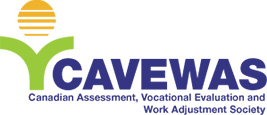Formal qualifications are valuable, but do not cover a lot of informal skills and attributes of value to employers.
There is a lot more to working successfully than formal skills and qualifications. It is abundantly clear that almost without exception, employment growth is restricted to skilled occupations and as a consequence young people are spending longer at school and in further and higher education than ever before. This is a good thing because they will acquire the formal skills to move into sustainable occupations.
However there are many informal skills that employers regard as essential for successful workers. Being punctual, following directions, producing work on time, and giving attention to detail are all skills that speak to the reliability of an employee. Whilst these sorts of skills may be incorporated into various courses, or student attributes systems, it is not done in a systematic or comparable way. There exists a gap between a person's record of academic or training achievement, and an employer's understanding of the skills an applicant possesses by dint of their qualifications.
Skills such as being innovative or creative, creating a positive impression, showing respect for others or accomplishing tasks independently matter a lot to many employees, yet such skills are not obviously captured in formal education and training and too often have to be inferred from a resume or accepted on the basis of an assertion from an applicant.
What is required is a way of systematically capturing these skills that matter to employers alongside the more formal qualifications. In the same way that a law degree is a "passport" or document that allows a person to progress through the borders and into the field of law, a skills passport could be an efficient way of connecting young people with employers giving them entry to new roles based on documenting commonly understood and desirable informal skills.
The skills passport concept has been implemented in Canada, and the newly established UK government initiative, The Careers and Enterprise Company is rolling out an enterprise passport in the UK. The stated aim is to "encourage young people to broaden their experiences and showcase their extra-curricular experiences and wider skills to support future employment." This is an excellent initiative that promises to provide a common framework for capturing these wider skills that we know employers require, and that many young people possess but hitherto have had no clear way of communicating.
Connecting enterprises and young people by supporting young people to talk the language of enterprise can only be a positive development. Whilst we have made great strides towards developing a better educated and more skilled workforce, for this investment of time and resources to pay dividends we need to find ways of opening the doors of enterprise to young people, and to equip young people with the full set of keys to unlock the doors of opportunity that enterprise offers. The enterprise or skills passport is a very positive step to making this happen.
Jim Bright is Professor of Career Education and Development at ACU and owns Bright and Associates. Email opinion@jimbright.com. Follow @DrJimBright.
